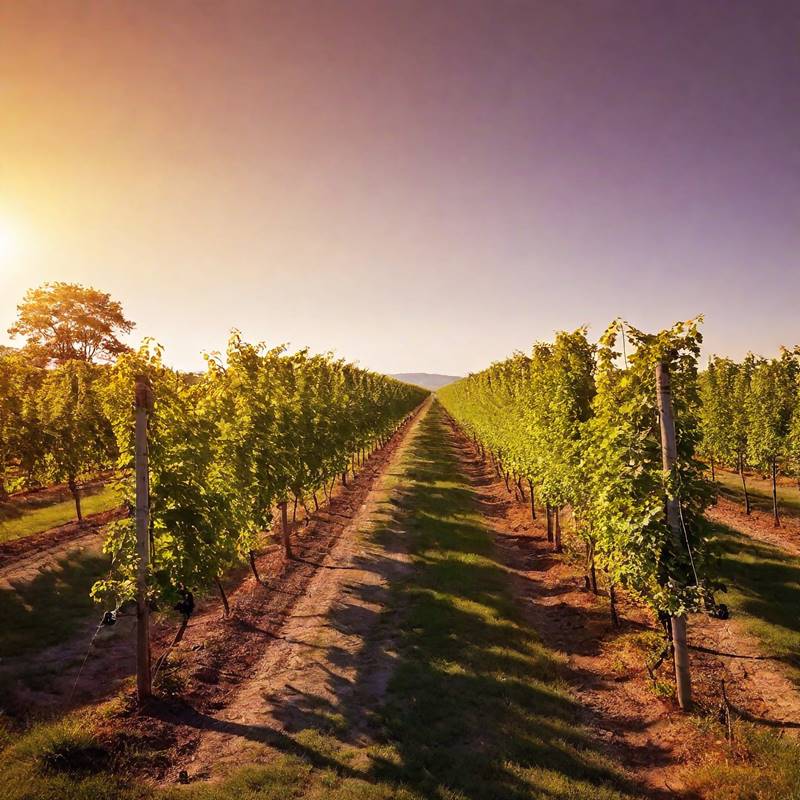California Wine Country: Drones, AI, and Ancient Wisdom Fight for the Future
California's North Coast Leads the Way in Sustainable Viticulture
2024-04-23

As the climate continues to shift, vineyards across California's North Coast are not just witnessing the effects; they're actively engaging with them. During a detailed webinar hosted by the University of California, Davis, local viticulture advisors unveiled both the growing challenges and the innovative adaptations shaping the future of viticulture in this celebrated wine-producing region.
Monica Cooper, a viticulture advisor in Napa County, outlined the nuanced climatic shifts occurring in the valley. Notably, while the peak daytime temperatures haven't shown dramatic increases, the nighttime temperatures have crept up, leading to more tropical nights where the mercury doesn't dip below 68 degrees Fahrenheit. This subtle yet significant change impacts the crucial cooling off period vines need, potentially affecting grape ripening and quality.
To combat these shifts, growers have ingeniously tweaked their viticultural practices. Techniques have evolved from the traditional Vertical Shoot Positioning (VSP) to a more "relaxed VSP" that allows for greater shading of the fruit zone, helping protect the grapes during hotter days. Additionally, a shift towards deeper-rooted rootstocks and the use of no-till farming methods with cover crops or mulching are becoming more prevalent, demonstrating a stride towards sustainability and resilience.
The devastating wildfires of 2017 and 2020 have also put a spotlight on the importance of maintaining healthy forests and wildland vegetation. These areas are vital for supporting a healthy ecosystem that can combat vineyard pests naturally and protect the region's water and soil health.
Harnessing Technology for Precision Farming
The drive towards precision agriculture is gaining momentum, with technologies like drone helicopters for spray applications and AI-based tools for monitoring vine health making their way into everyday use. These tools not only enhance the efficiency of vineyard management but also ensure safety and reduce labor costs. Cooper's team is also pioneering in-house testing for vine diseases like the red blotch virus, which promises quicker, more affordable detection methods.
The Rootstock Revolution: Insights from Sonoma, Lake, and Mendocino
Moving westward to Sonoma, Lake, and Mendocino counties, Christopher Chen, an integrated vineyard systems advisor, has been focusing on how different rootstocks can help vines better cope with climatic stresses. His ongoing Climate Adaptive Rootstock Study aims to identify which rootstocks are best suited for various microclimates across the North Coast.
Chen's research has shown significant variations in vine performance based on rootstock and site conditions. While the local site conditions seem to play a larger role than the choice of rootstock in aspects like berry size and sugar accumulation, the type of rootstock still significantly affects yield and vine stress levels. This insight highlights the complex interplay between genetics and environment in vineyard management.
Looking Forward: Climate Adaptation on the Vine
As these advisors and researchers continue to push the boundaries of what's possible in viticulture, their work underscores a larger narrative of adaptation and resilience within the wine industry. From innovative shading techniques to advanced genetic research, the strategies being employed are as diverse as the wine portfolio these regions boast.
The efforts of UC Davis and the Cooperative Extension to facilitate these discussions and share knowledge across the community are pivotal in ensuring that the North Coast remains at the forefront of high-quality, sustainable wine production despite the looming challenges posed by climate change.
In the face of an evolving environment, it's clear that the fusion of technology, tradition, and community will be key to the sustainable future of viticulture in California's North Coast. The region's winegrowers show us that with creativity and cooperation, the wine industry can not only survive but thrive, preserving the legacy of these cherished vineyards for future generations.
Founded in 2007, Vinetur® is a registered trademark of VGSC S.L. with a long history in the wine industry.
VGSC, S.L. with VAT number B70255591 is a spanish company legally registered in the Commercial Register of the city of Santiago de Compostela, with registration number: Bulletin 181, Reference 356049 in Volume 13, Page 107, Section 6, Sheet 45028, Entry 2.
Email: [email protected]
Headquarters and offices located in Vilagarcia de Arousa, Spain.